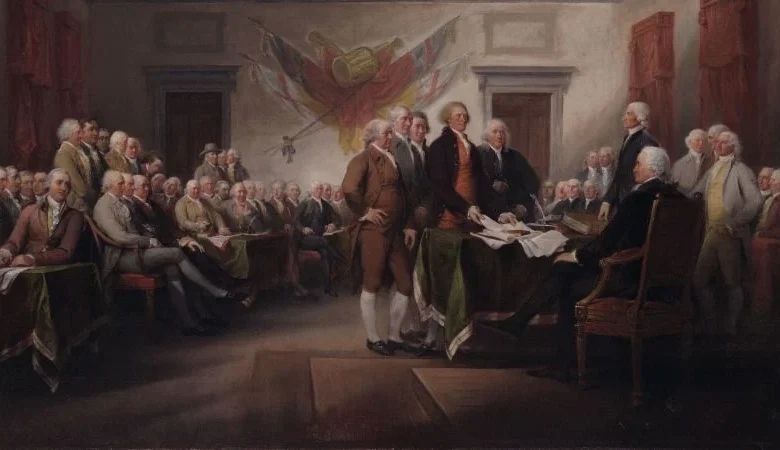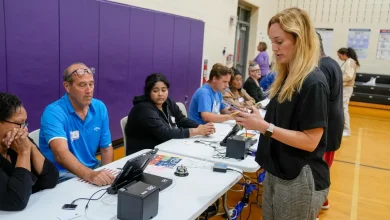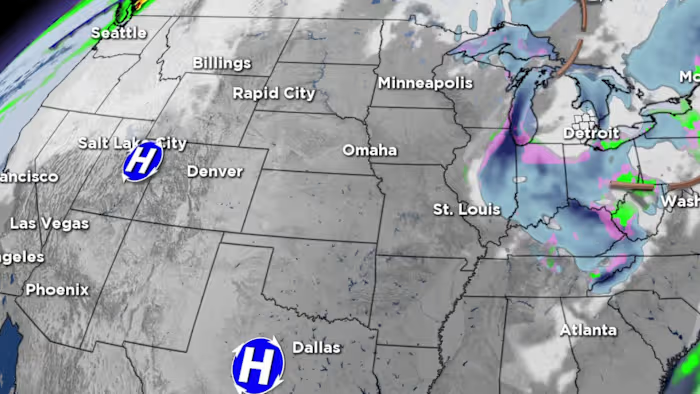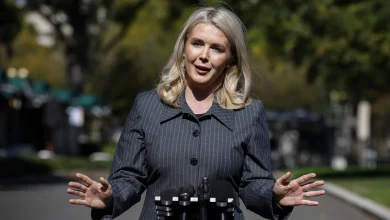PBS, defunded by Trump, says ‘we’re still here’ with big new Ken Burns documentary

Austin
—
Sunday’s premiere of Ken Burns’ new PBS series “The American Revolution” doubles as an attention-grabbing statement, months after President Donald Trump succeeded in stripping away all federal funding for public broadcasting in the US.
The message is clear: “We are still here.”
The documentary, which airs over six consecutive nights, is “a really big moment” for PBS, said Paula Kerger, the organization’s CEO.
There has been some marketplace confusion as a result of Trump’s campaign to defund public media.
Since the Corporation for Public Broadcasting (CPB) is winding down as a consequence of the funding cut, “people thought that meant that we were gone,” Kerger said.
However, the big and loud marketing campaign for “The American Revolution” is proving otherwise.
Despite painful layoffs and other cost-cutting measures, the public broadcasting system remains intact and is still capable of HBO- and Netflix-sized moments, such as the latest from Burns.
“The American Revolution,” pegged to America’s 250th anniversary celebration in 2026, has been in the works for 10 years.
“We began this in December of 2015 when Barack Obama had 13 months to go in his presidency,” Burns told CNN’s Anderson Cooper. “There’s been a lot of water under the American bridge during this time.”
During Trump’s first term in office, he repeatedly proposed eliminating funding for the CPB, but congressional Republicans preserved the funds, in part to protect the local stations serving their constituents.
Trump was much more aggressive this year, however. Driven by his disdain for PBS and NPR news coverage, Trump pushed GOP lawmakers to rescind already-allocated funds for the CPB, which is the private entity that disburses taxpayer funds to local NPR and PBS stations across the country.
That rescission passed in July, and the federal funds dried up in October, marking an end to nearly 60 years of federal government support for public media.
Ken Burns tells Anderson Cooper what he learned from his latest project, “The American Revolution.”
Ken Burns tells Anderson Cooper what he learned from his latest project, “The American Revolution.”
5:59
Some local stations are more affected than others. Those in bigger markets generally have more donors and other sources of revenue; those in smaller markets have fewer such resources. Public media officials have warned that stations in rural and hard-to-reach areas are at particular risk of going off the airwaves in the months and years ahead.
In the short term, however, emergency grants and loans from the Knight Foundation and other philanthropies are helping replace some of the lost funds.
Speaking on stage at the Texas Tribune Festival, Kerger said that fundraising “has actually gone pretty well,” emphasizing that PBS is still pushing Congress to restore funding in the future.
“I believe we can get some of that money back,” Kerger said. “And I’m going to certainly fight like crazy” for it.
The rescission took effect as Burns was beginning his nationwide tour for “The American Revolution.”
The six-part, twelve-hour series is the highest-profile PBS premiere in years, garnering multiple weeks of publicity, including advance screenings across the country.
“This is the kind of work that public broadcasting is built to do,” Kerger said. She recounted a recent screening in Washington, where conservative lawmakers stood alongside progressives wanting to meet Burns.
“It bugged me a little bit that some of them voted against us and they were still waiting to shake Ken’s hand,” Kerger remarked, “but the point is they recognize that what he’s doing is important.”
A sweeping production like “The American Revolution” involves a long list of private donors, as well as support from the Corporation for Public Broadcasting.
During the congressional debate over the summer, Burns personally called some Republican lawmakers to try to salvage the funding.
“I couldn’t do any of the films I’ve done without them being on PBS,” he told CBS at the time.
James Poniewozik, reviewing the series for The New York Times, wrote that “it is dedicated to a belief that seems increasingly old-fashioned: that we share a common story and that people are willing to hear it, both the good and the bad.”
Burns told Cooper that reflecting on your roots, as the series does, can be a source of strength and power.
“When you feel like we’re challenged, as we do now, that we’re divided, you go back, as a person would, to a therapist and ask, ‘Where’d you come from?’ And going back to our origin story gives us the opportunity to help repair, maybe revitalize what it was that we were originally involved in, to dispel some of the myths about it and to also help understand how extraordinary those people were.”





